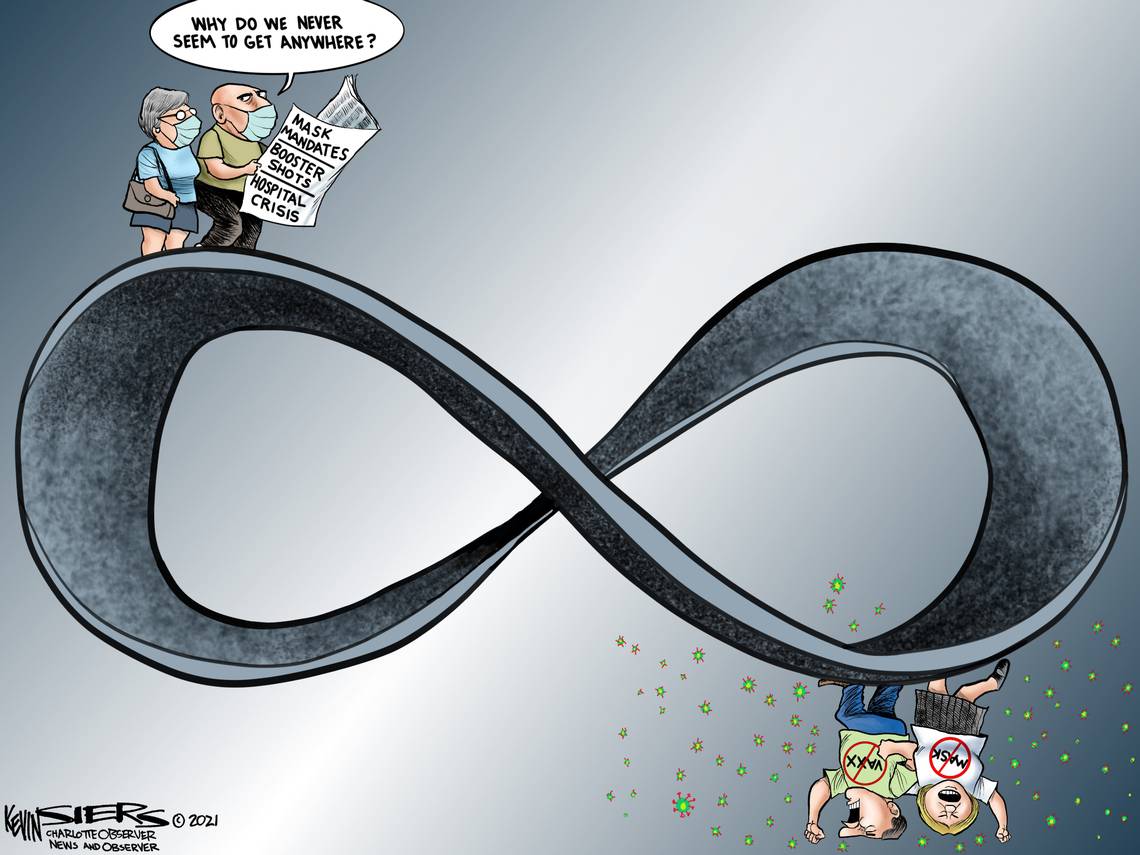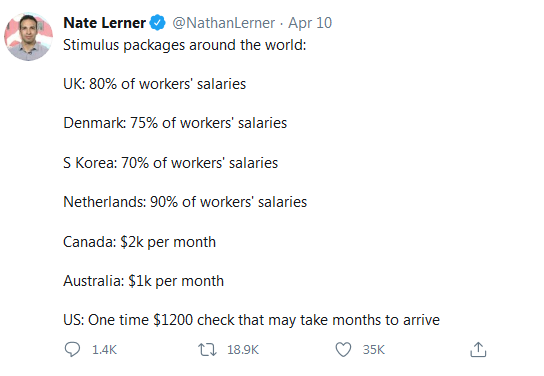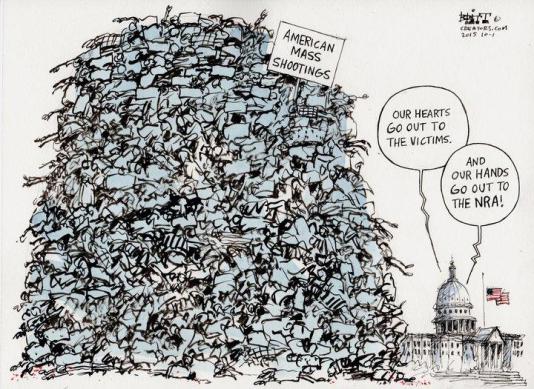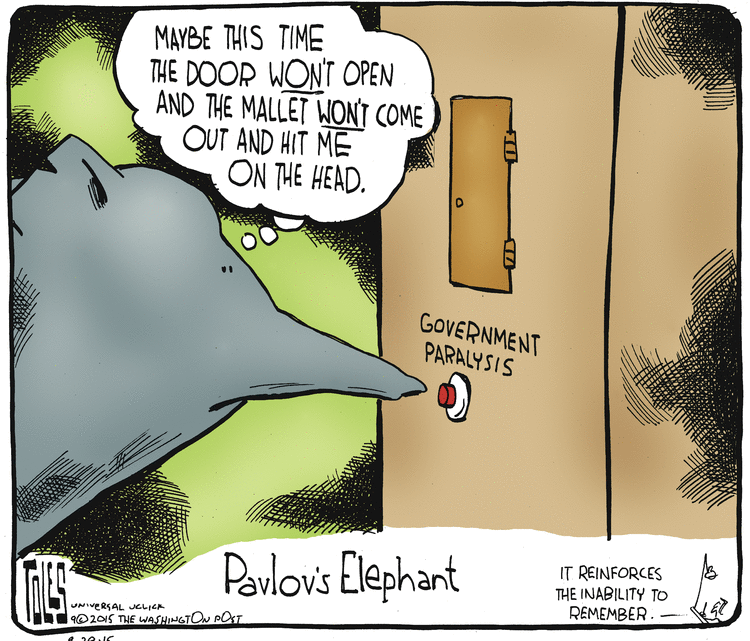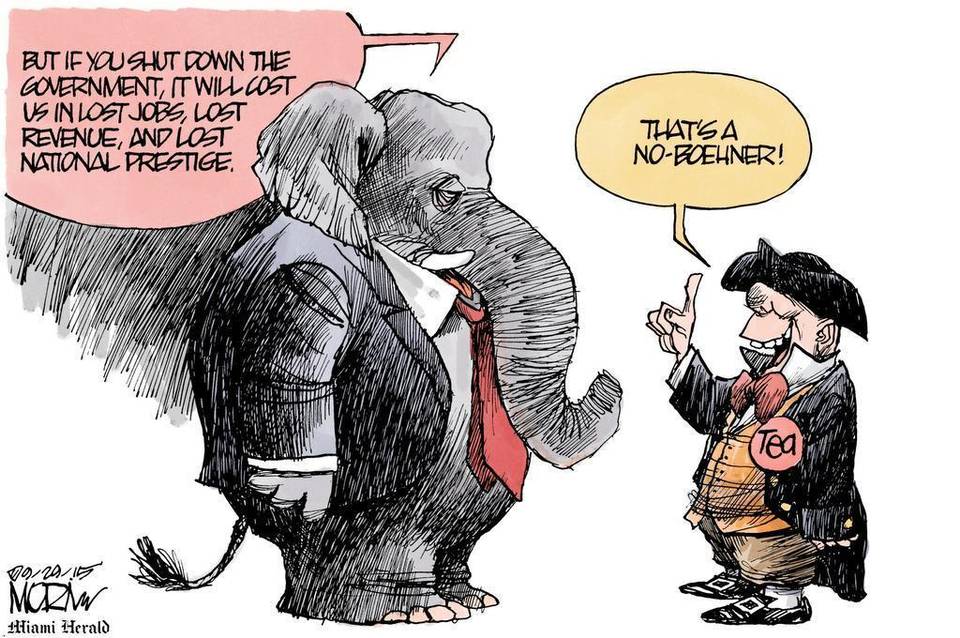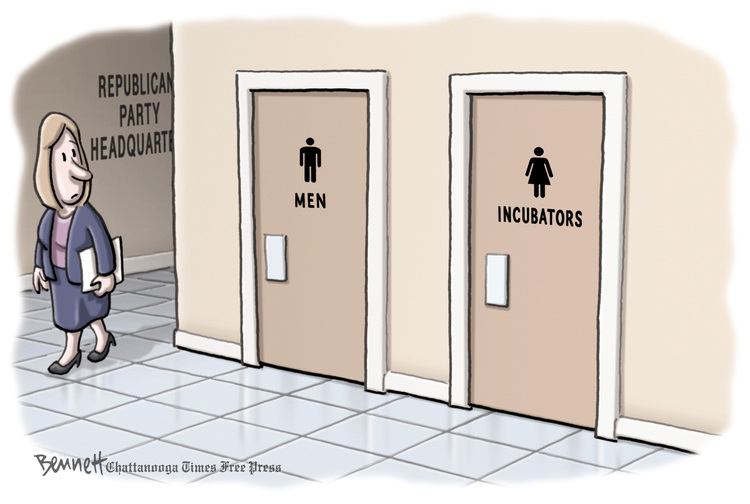The Daily Escape:
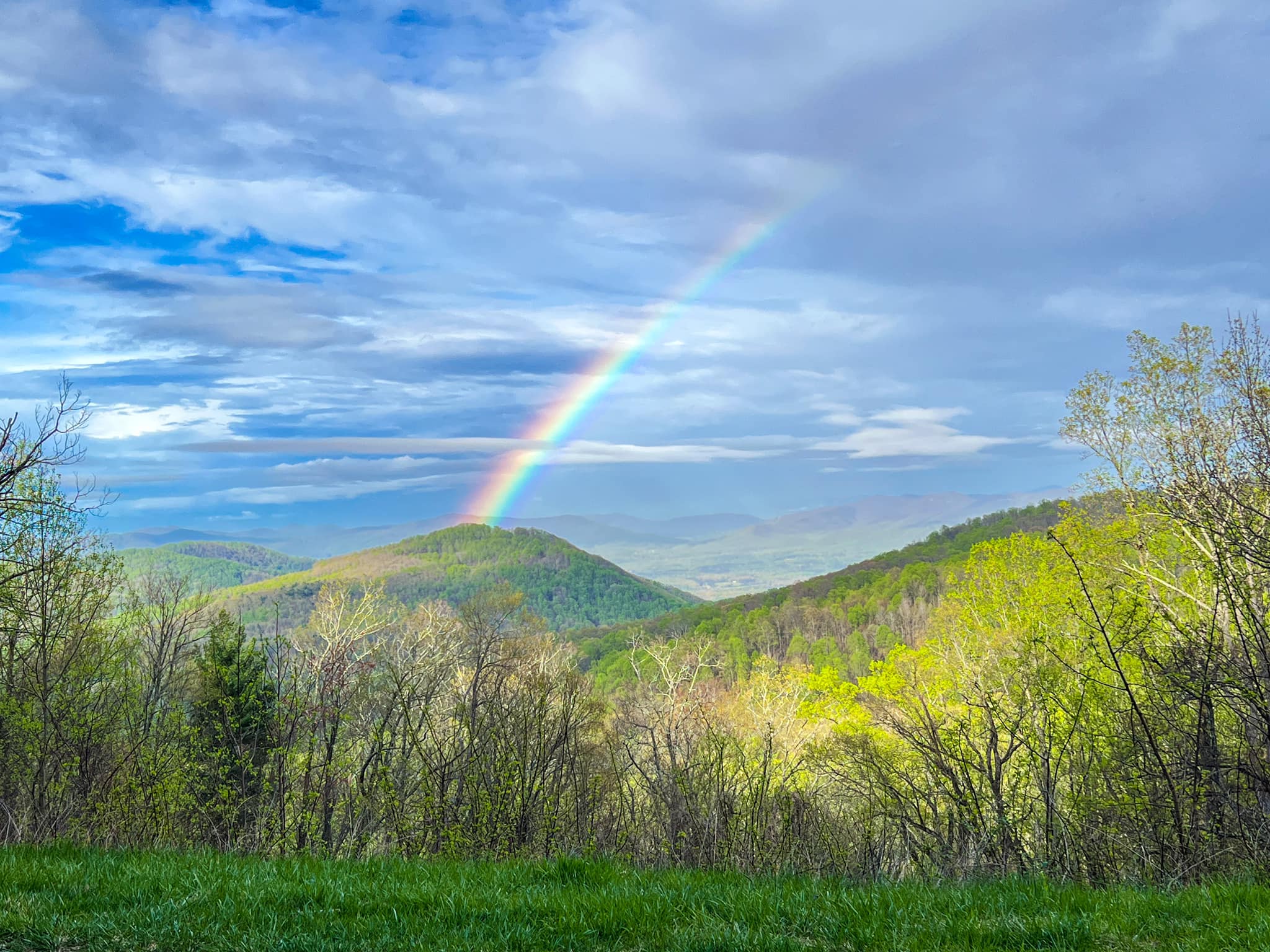
Rainbow, Blue Ridge Parkway, VA – April 2023 photo by Tim Lewis
American carnage is real, my friend. Just not in the way that Trump stated in his inaugural rant. The American carnage Wrongo speaks of is the gun attacks made on others by angry or fearful lone American gunmen. From Charlie Sykes at The Bulwark:
“Ringing the wrong doorbell, making a wrong turn, getting in the wrong car, and an errant basketball. A wounded teenager, a dead young woman, cheerleaders in critical condition, and a 6-year-old girl and her father shot.”
The Indiana man who shot a 16-year-old boy for knocking on his door is described by his grandson as a conspiracy theorist and avid consumer of right-wing media: (emphasis by Wrongo)
“I feel like a lot of people of that generation are caught up in this 24 hour news cycle of fear and paranoia perpetuated by some…news stations. And he was fully into that, sitting and watching Fox News all day, every day blaring in his living room…..that doesn’t necessarily lead people to be racist, but it reinforces and galvanizes racist people. And their beliefs.”
Right wing propaganda is about fear. And some people bathe in it for hours a day. So, while the rest of us enjoy walks in the park or a trip to the market, they’re terrified of every swarthy stranger at the Publix or Home Depot.
Add this level of fear to the implicit permission given gun owners by “stand your ground” laws, and you have the elements of an environment of violence. Vox provides background:
“Some of these shootings took place in states with so-called “stand your ground” laws, which offer expansive legal protections for people who use deadly force against others out of self-defense….and experts have noted that the laws can bolster a “shoot first, ask later” mentality.”
More: (emphasis by Wrongo)
“Under such laws — which exist in some form in 38 states — people can use lethal force if they reasonably believe their life is under threat, and they don’t have to take steps to retreat or avoid the confrontation first. That’s a stark change from prior laws….In the past, the “castle doctrine,” which has been adopted by most states, allowed people to use deadly force if a person entered their home.
Stand your ground laws take that idea one step further, with some making such allowances no matter where a person is, whether that’s a public place, their vehicle or their office.”
Add pervasive fear and permission to stand your ground to the proliferation of guns in America (aided by the Supreme Court’s expansive reading of the Second Amendment) and the US has come undone. From Umair Haque: (emphasis by Haque)
“Did you know that America isn’t just the most violent nation in the industrialized world — but an off the charts extreme outlier? Iceland is the world’s most peaceful society. Canada is the world’s 12th most peaceful society. America is the… 129th.”
That’s 129 out of 163 countries tracked. Further evidence is in the recent TSA statistics about intercepting guns about to be carried on to planes:
“Officers with the Transportation Security Administration confiscated more than 1,500 guns at airport security checkpoints in the US during the first quarter of the year, more than 93% of which were loaded. The 1,508 firearms equate to an average of 16.8 intercepted each day during the first three months of the year…”
The gun gives its owner the power of life and death. No training needed. The power of God right there in your hand. It’s very attractive to a certain type of person. And we cultivate that type of personality in America.
We have no safety nets, no social bonds, no norms of decency. That means we ask each other to bear the unbearable.
We don’t invest enough in safety nets, insurance, public goods, healthcare, education, and, in most states, gun laws. According to Haque, it’s all justified by politicians saying, “I can bear the unbearable — why can’t they?” But we can’t do that forever. Someone will snap, and the frustration of bearing the unbearable pours out as rage that’s visited on whomever is nearest, or easiest to hurt. That’s American Exceptionalism at work. America’s extreme violence, caused in large part by the twisted ideology that asks Americans to bear unbearable things.
Enough about guns and people snapping. It’s time for our Saturday Soother! Here on the Fields of Wrong, our crabapple trees are in bloom. They’re being visited by both birds and bees, each looking for high calorie snacks. The bees for the flowers, the birds for the buds. Our spring clean-up is lagging, so there’s still much to do.
But first, let’s relax for a few minutes. Grab a comfy chair near a big window and watch and listen to Valentina Lisitsa, a Ukrainian-American pianist, play “Rustle of Spring”, a solo piano piece written by Norwegian composer Christian Sinding in 1896:
If you are interested in amazing piano technique, watch Lisitsa perform Liszt’s Hungarian Rhapsody No. 2.


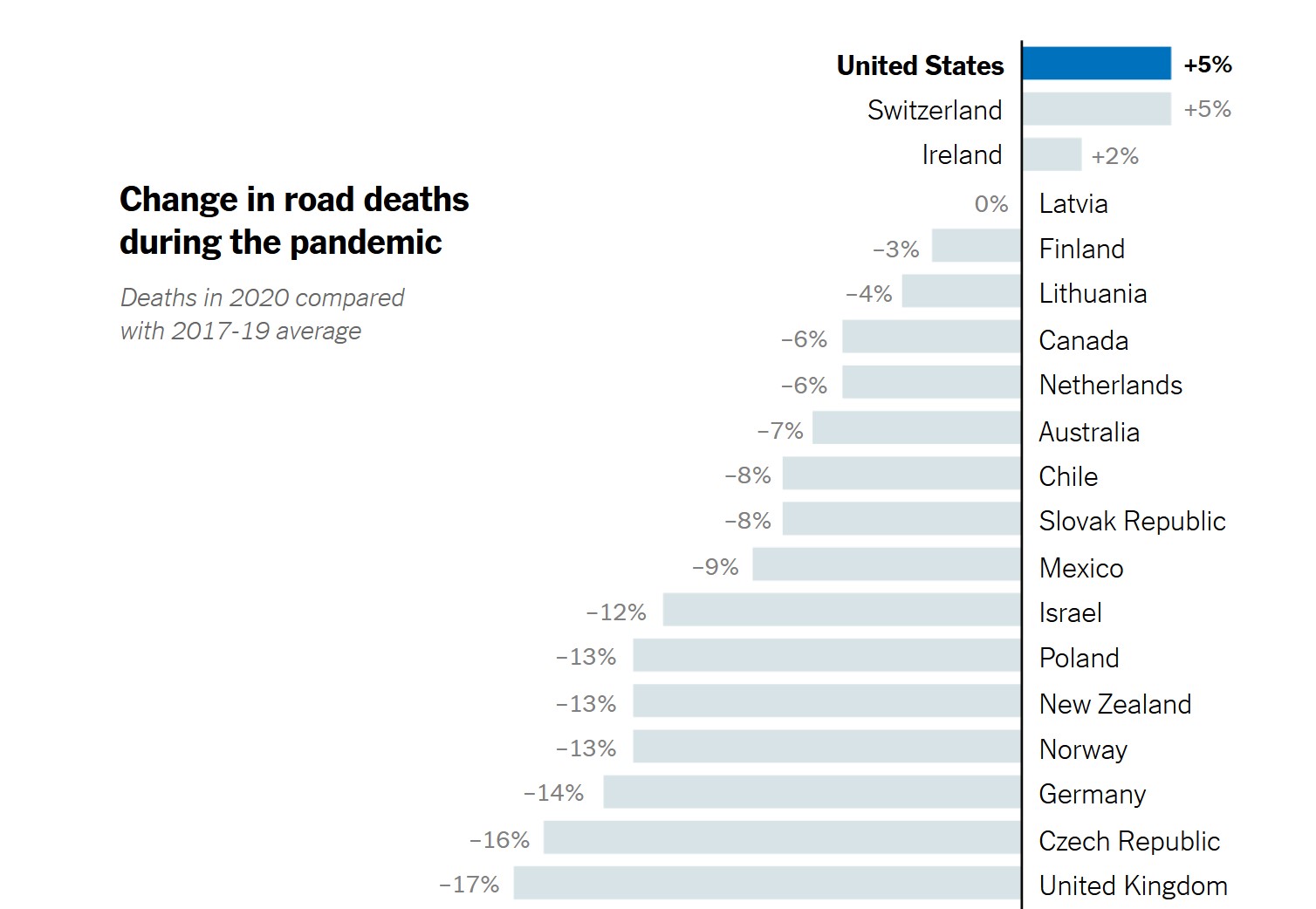
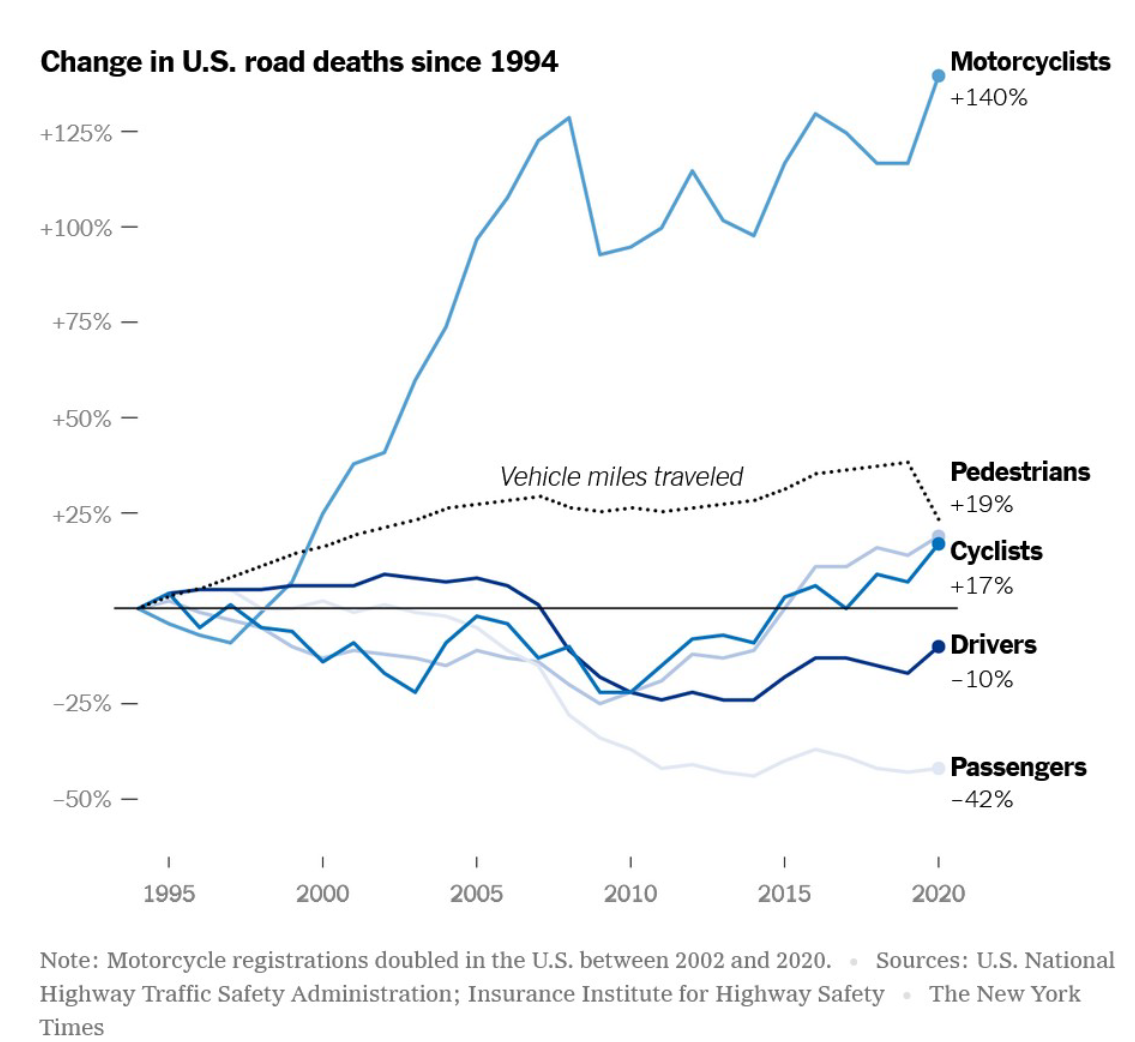
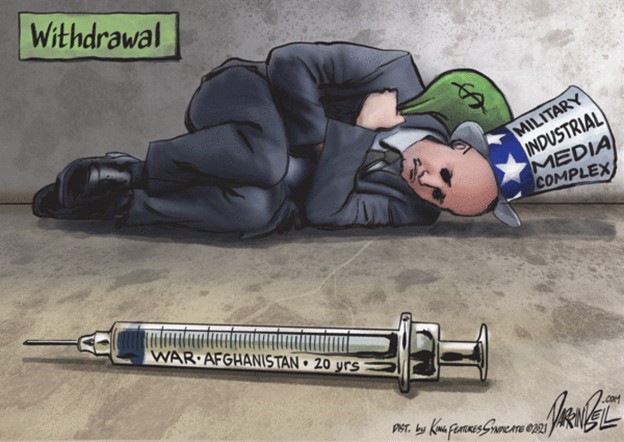

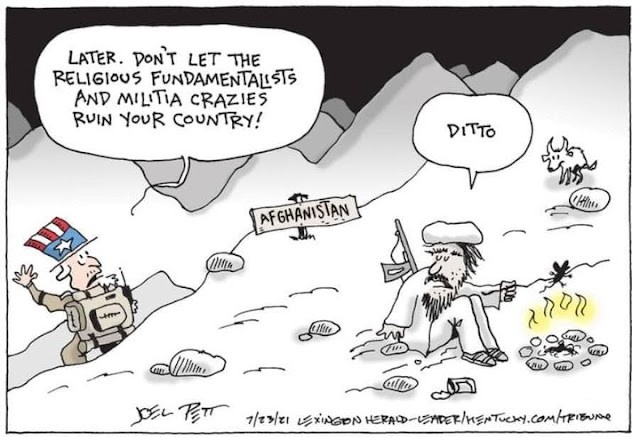
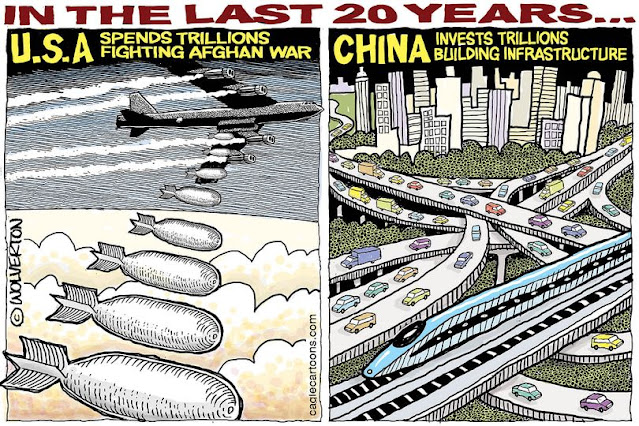
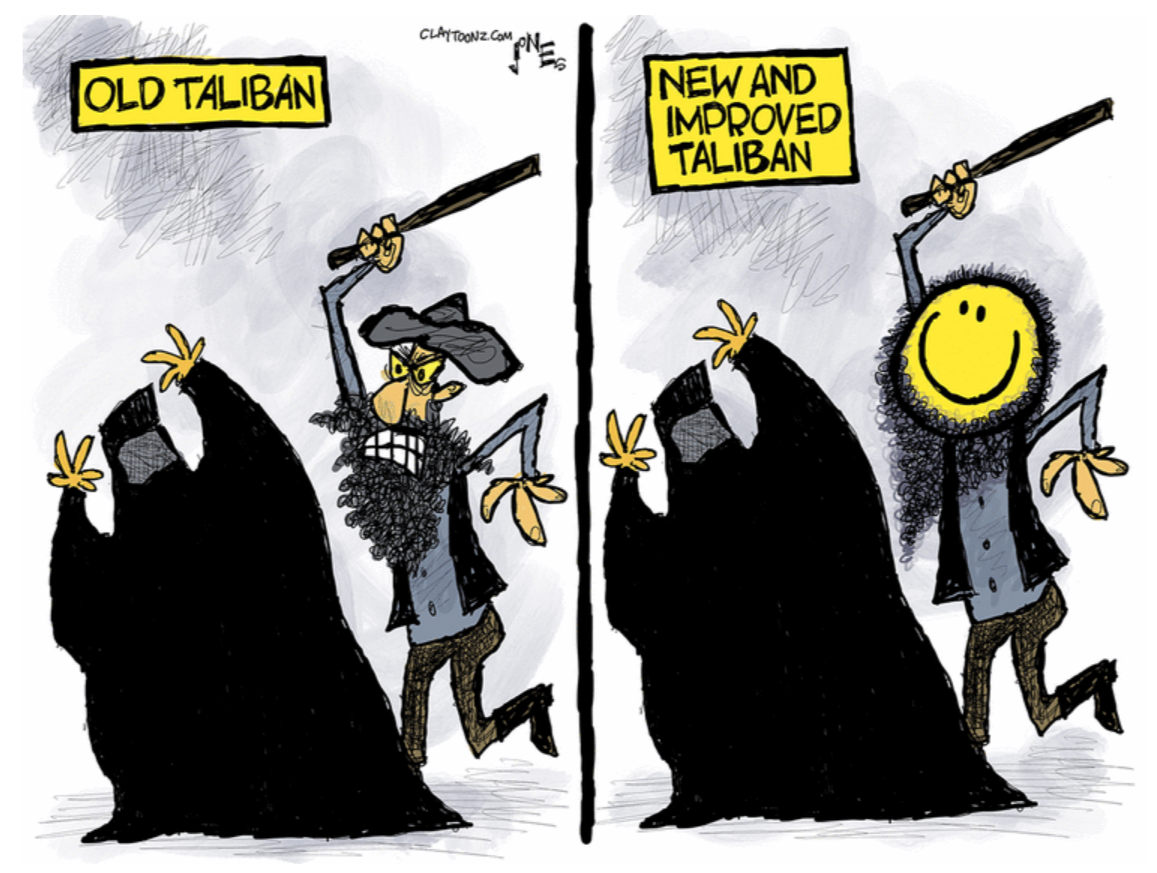 Bush famously painted us in the corner of both Iraq and Afghanistan:
Bush famously painted us in the corner of both Iraq and Afghanistan:
